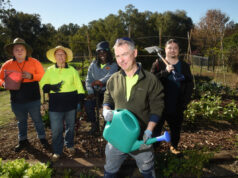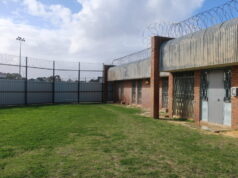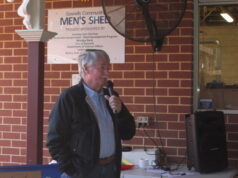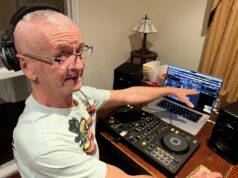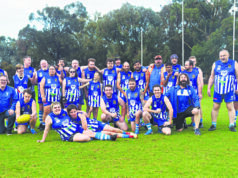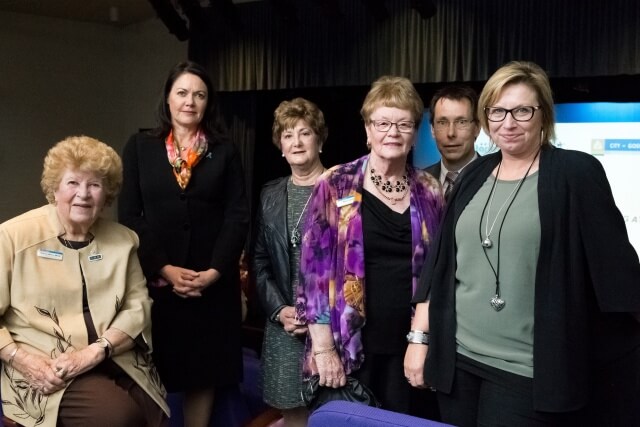
Domestic violence campaigner and former Australian of the Year Rosie Batty has called for more focus on holding perpetrators accountable for their crimes.
Speaking at a forum in Thornlie last week Ms Batty said discussions about domestic and family violence often centred on the victim but not the perpetrators.
“I’ve heard all about the wonderful things we can and should do for women who are experiencing violence in the community but I want to hear what we’re doing to hold perpetrators accountable for the violence they’re exhibiting,” she said.
“A woman doesn’t necessarily want to leave the relationship – she just wants the violence to stop.”
Ms Batty said the community also needed to end its victim blaming mentality, which included asking why victims stay in violent relationships.
“That question seems a standard one we should ask but it’s always asked by someone who doesn’t understand,” she said.
“When a woman leaves, she’s changing the power dynamic and she’s putting herself and her children at greater risk.
“The two women a week on average who are being murdered are those who choose to leave, who take out an intervention order and take the very steps that we say they should take.”
Ms Batty said there were many complex reasons for a victim choosing to stay in a violent relationship including fear of homelessness and financial barriers but it was the fear of changing the power dynamics that was most significant.
She said it was this challenge to the power dynamic that led to her son Luke’s murder in February 2014.
Luke was just 11 when his father Greg Anderson killed him in front of horrified onlookers after a cricket training session in Victoria.
Mr Anderson, who had a history of mental illness and had been the subject of an apprehended violence order, was shot and killed by police at the scene.
Ms Batty said Luke’s murder had been a final act of power and control to make her suffer for the rest of her life,”
“He didn’t kill me – he knew he could get to me in a way that was beyond comprehension,” she said.
“He did that because I made him accountable – I put a line in the sand when he threatened to kill me and cut off my foot.
“I stopped him having access to Luke and I went through the proper channels.
“I was in and out of court like a revolving door.
“I thought I was doing the right things – I was doing the only things available to me.”
Ms Batty said while things were changing regarding family violence there was still a long way to go.
“Many people still don’t know what family violence is,” she said.
“They understand physical violence, but psychological and financial violence are just as sinister but they are very difficult to explain and to prove.
“But I can tell you now, the overwhelming abuse I suffered was psychological.”
She said it was also important for people to understand that family violence was not restricted to poor, rough neighbourhoods.
“If it can happen to me, it can happen to anyone,” she said.
The forum was hosted by Starick and the Older Women’s Network WA in partnership with support from Women in Mining WA and LotteryWest.
DV incidents on the rise
Domestic violence calls to police have increased by 25 per cent in the last financial year.
The shocking statistics were revealed by Police Minister Liza Harvey, who spoke at a domestic violence forum in Gosnells last week.
“In the 2015-16 financial year, WA Police received over 63,000 calls from the community for family disturbances and breaches of violence restraining orders,” she said.
“In the 2014-15 financial year we received 51,000 calls for the same matters.”
She said WA Police had reported a 31 per cent increase in domestic violence incidents since 2009-10.
“That’s a high number and the high number of reported domestic and family violence incidents is not necessarily a bad thing,” she said.
“I think it shows that West Australians are recognising that this behaviour is not acceptable.
“The State Government recognises the enormity of the effect domestic violence has on the community and on the individuals in these families.”
Ms Harvey said while domestic violence remained a priority for the State Government there was no ‘silver bullet.’
“We need a range of response, prevention and intervention initiatives and we need the support of the community if we are going to have an integrated approach to domestic violence,” she said.
Ms Harvey said the State Government had committed about $35 million worth of funding to the community sector for the 2016-17 financial year to help deal with domestic violence and had created a new policing division but still needed the community to engage with the issue.
“We need to start asking those questions of people,” she said.
“Are you okay, is everything okay at home and can I help you with anything?
“Until we start sticking our noses into other people’s businesses and ask how they’re going the vast number of victims of family and domestic violence will remain unknown.”
Sergeant Melissa Russell from the South-East Metro Victim Support Unit at Canning Police Station said there had been massive improvement since she began her career 15 years ago but there was still a lot of work to do.
“In my earlier days police officers were designed differently,” she said.
“It was all about doing the job quickly especially when attending domestics.
“In we went, established our authority, power and control and told them that we didn’t want to have to come back again – there was little focus on victims.
“I worked with some police officers who were reluctant to identify domestic violence as a serious offence, some believed it wasn’t police work and others failed to identify it as domestic violence at all.”
She said police officers had thankfully been redefined and was now receiving the attention it deserved.
“It has become the focus in the south east metropolitan police district,” she said.
“We are talking about it in our daily tactical meetings, we talk about it at musters and other officers stop and ask me how my victim is.
“We need to keep talking about it.”
According to Sgt Russell there are about 28 call outs to new domestic violence incidents in the south east metropolitan district everyday and there have been 7000 call outs in the district since the beginning of the year.
About 2300 domestic assaults were reported in the district with 450 in the Gosnells sub-district alone.
Victims of domestic violence in immediate danger should call police on 000 or to report an incident call 131 444.
Counselling services are also available through Starick on 9478 5300 or the Pat Giles Centre on 9300 0340.


